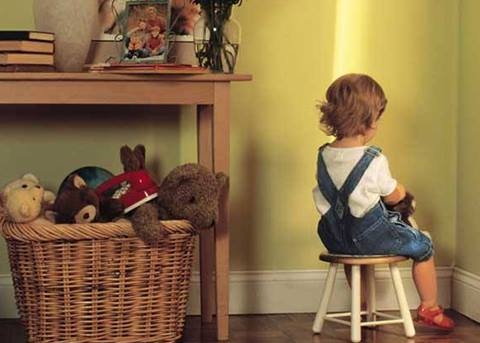Four reasons children misbehave and What to do about it
18/05/2016
-Ohana
-0 Bình luận
Children misbehave when one of their basic needs are unmet, and the child behaves in order to get that need met. Sometimes their behaviour is not appropriate, especially when it triggers an emotional response in their parents.

Children need to feel loved, powerful, valuable, to belong and free to experiment and explore in order to grow and understand.
If your child is misbehaving, in some way you have discouraged that child and have yet to meet their basic needs. Take responsibility for that and find ways to make your child feel loveable, capable, powerful, like they belong, they belong. Provide plenty of time and space for your child to experiment, learn, explore, be outside and just plain play!
Repair your parenting mistakes rather than covering them up. Be honest with your children when you’re having a bad day. Remember, children are excellent mirrors of your own behaviour. Children will also rise to your level of expectation. What do you want to teach them, model for them? What kind of people do you want them to become?
1. ATTENTION: The child’s thought is “any attention is better than no attention”.
You’ll know your child is seeking attention if you examine your own feelings about the situation. Do you feel irritated, challenged, annoyed? That’s a clear sign the child needs to feel valuable, like they belong and are important to you and because that need is unmet, they’re trying to attract your attention any way they can.
The Solution:
• Respond and listen attentively to your child as you would to a friend.
• Convey acceptance and respect for your child.
• Express empathy. “I’ll bet that makes you feel (fill in the blank according to the situation)
• Set aside private time to spend enjoyably with only that child. By all means, keep your promise!
2. POWER: The child gets into a power struggle over bedtime, has temper tantrums, etc.
Does your child’s misbehaviour make you feel challenged, angry, provoked? The sheer size difference between children and adults is enough to make children sensitive to power and who’s got it and how can they get it themselves.
The Solution:
• Set up ways for your child to get age appropriate power
• Let them make choices and decisions on what to wear—choices and decisions they can handle and learn responsibility from.
By giving them opportunities to exercise good judgment and decision making early, they’ll have the skills as teenagers when the consequences of poor choices are far heavier. You automatically meet their need to belong, to be recognized as a valuable person when you provide these learning opportunities.
3. INADEQUACY: The child claims they cannot do a task you give them, and they’re perfectionists when they actually do a task.
Even if it’s a task you’re reasonably sure they can do, this child procrastinates, whines, complains and tries to get out of it. How does this make you feel? Do you feel confused about their true capabilities? Do you wind up doing the task yourself because “it’s easier that way?”
The Solution: The child’s unmet need is to feel capable and it’s closely tied with the need to feel loveable.
• Teach the child to be OK with making mistakes and to be gentle with themselves when they do make mistakes.
• Teach the child to do their Personal Best.
• Break tasks into smaller portions and/or steps.
• When they do complete a task successfully, ask them what they learned about their capabilities.
• Assure them of their capabilities and lovability.
Watch your own reaction to their misbehaviour. Detach from overprotecting them or rescuing them. They’ll gain confidence from each completed task or project.
4. REVENGE: The child deliberately destroys things, especially your things, is vicious, lies, blames others.
The child uses his after other forms of misbehaviour didn’t get their needs met. This child has been so far pushed out of their lovability; they feel they can only get a painful reaction out of you. When the child misbehaves in this extreme fashion, the parent feels hurt, angry, wants to hurt the child back and may even dislike the child, to say nothing of feeling guilty about this behaviour: “Why is my child doing this to me ? I must be a horrible parent!”
The Solution: You must get your own feelings and mind in the right place and must not retaliate or you’ll make the whole situation worse. (Even though, of course, it’s natural for a parent to react strongly to such misbehaviour. You just want it to stop right now!)
• Find ways to detach from the immediate situation—leave the room, lock yourself in the bathroom if that’s the only private place you have.
• At a calmer time, talk with the child about their good qualities.
• Teach the child to express their feelings without hurting the parents.
• Catch misbehaviours at an earlier stage before they escalate to Revenge.











